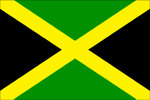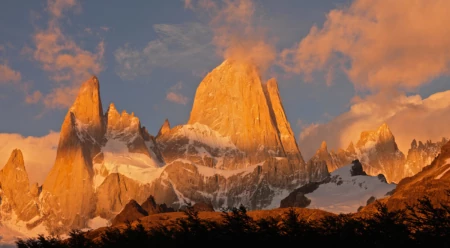What’s In a Name? Responding to a Customer Letter
W’s Tosh Crew Neck Sweater. W’s Wailer Skirt. W’s Trench Town Hoody Jacket/Pants.
 Do the names of those products prompt anything to come to mind for you? As a long time fan of reggae music and particularly, the collective and individual members of The Wailers, I was surprised and, initially, disturbed that Patagonia would reference these names for our clothing.
Do the names of those products prompt anything to come to mind for you? As a long time fan of reggae music and particularly, the collective and individual members of The Wailers, I was surprised and, initially, disturbed that Patagonia would reference these names for our clothing.
This group used the power of music, a haunting melody, a simple lyric, as a way to fight against the poverty and injustice that they saw inflicted on their communities and others like it. So powerful was this music, that Peter and Bob faced physical violence and assassination, respectively, in an attempt to silence them.
Recently, a comment from one of our customers arrived in my inbox. This comment led to a round of emails that has caused me to question some of my own assumptions.
Here is an excerpt from the customer’s email:
"I am a loyal customer of yours for over 30 years and a great admirer of what Yvon has put together over the years. I just received your 2007 holiday catalog and was impressed with everything except for one small detail. The use of "Trench Town" to market hoody and pants (page 40) was a disappointing display of ignorance on your part. Trench Town was one of the poorest, over crowded, crime ridden slums in the Western Hemisphere when I worked there as a Peace Corps Volunteer in Jamaica in 1974-1975. To use this infamous (although soulful thanks to Bob Marley’s true songs of the suffering there) name to market women’s clothing came as a shock to me, especially from your organization. Just curious why someone would use Trench Town in that context.
If people want to do something to show their belief or "give credit" how about supporting the TrenchTown Reading Centre?"
Curious to hear the other side of the story, I got in touch with the design team here at Patagonia to feel out where they were coming from. Over the course of a couple of emails, a reasoning was had. Here is a small excerpt from our dialog:
"In fact I am very aware of what Trench Town stands for but from all that poverty and chaos, many reggae artists began their musical journey there. I read a lot about roots reggae artists from a very powerful time in Jamaica, where amidst poverty, their music was elevated to global heights – and all from the tiny and poor island of Jamaica. Using ‘Wailers’ or ‘Trench Town’, should not be taken as an ignorant display, but rather a tribute that even in poor and violent areas, light shines through and magic happens.
I have loved reggae music since the 70’s, and praise [Jamaica] for sharing it with all of us and making a great impact worldwide. I have some wonderful Jamaican friends whom I asked before using [the names] if it was OK, and they were not insulted, in fact they felt proud. I have also had the honor to have spent some time with Cedella Marley — Bob Marley’s mother — when I lived in Miami. She and Bob lived in Trench Town.
It is one’s prerogative to look at the negative side only and not see that from harshness comes also beauty and soulfulness. I come from outside the US where, although not my personal experience, I have seen true poverty firsthand. But I also recognize that from chaos also comes beauty, art, music… Take Bahia, Brazil another poverty- and violence-stricken state, where there are many a slum. But beautiful music, dance, a rich culture and shining smiles also come from there."
Valid point. The entire discourse challenged me to uncover what really bothered me about the whole thing. I don’t come from a background of poverty and while I enjoy the music, I can’t honestly make the argument that its giving a voice to my troubles and concerns. So if anyone has a right to take offense, is it me? Am I just taking offense because I’m assuming it would be offensive to somebody else?
In giving it further thought, I feel that out of respect for what this band was about and for what their music meant to so many people, that their imagery should be off limits. Period.
To paraphrase a blog I came across "Re-appropriation is good – but it depends on who’s doing it and from whom." What do you think?
[Top:"Out of many, one people" – The flag of Jamaica]
